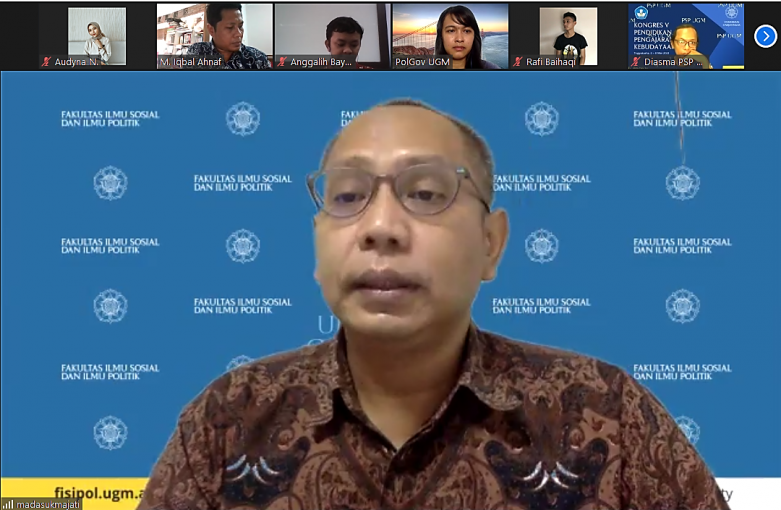
Yogyakarta, May 10th 2021━On Monday (10/05/21), PolGov released a research about the controversy of The Valentine’s Day ban in Indonesia by partnering with KU Leuven in Belgium as the research partner. The partnership between PolGov and KU Leuven is centered on issues of toleration and this year is their last year of partnership. The release of the Big Data analysis is started with an exposition of the research results from PolGov researcher, Anggalih Bayu Muh Kamin, and Dian Nuri Ningtyas as the Project Manager of the Partnership between PolGov and Ku Leuven.
Anggalih started her presentation by saying that the background of this research was the ban of Valentine’s Day celebration from local governments or Majelis Ulama Indonesia organization branches. This ban creates a controversy that through this research was analysed through the public discussion going on in Twitter and other online media. The first research that tracks public discourse on Twitter used a chain of methods that includes crawling, cleansing, data classification, and data visualization. The method for the research on other online media was done by first formulating the research model, keywords, data mining based on the keywords, data and text cleaning, data visualization, and then the analysis. The research is meant to see the public’s reaction, are they tolerant or intolerant towards Valentine’s day celebration?
The public discourse research in Twitter is first done by categorizing 51,88% from 324.383 tweets about the Valentine’s day ban from the last five years which is from 2016 to 2021. Here, the result is that there is content that can be categorized in full tolerance (55,55%), semi intolerance (4,29%), and neutrality category that have a higher engagement than the tweet volume. Anggalih explained the research result by saying that the condition that reflects the social media users contributes in creating a communal tolerance towards the Valentine’s day ban in Indonesia. Interestingly, “The discourse trend on Twitter from 2016 to 2021 around the Valentine’s day ban is actually a platform for social media users to be more tolerant or to not follow the ban at all.” Anggalih said.
The research on other online media is done by tracking articles published from 2016 to 2021. Dian said that at least an average of 1000 articles are published per year about Valentine’s day celebration from the total of 5.209 articles from 205 portals in the timespan of 5 years. Liputan 6 ranked highest in the online article with the most coverage (713 articles) about Valentine’s day, followed by the lowest rank held by Sindo News (125 articles).Valentine and online media doesn’t publish intolerant content. The issue of Valentine instead is linked to other issues in 2016 to 2021. In other words, it isn’t viral because of the topic alone. Dian then concluded the presentation with a statement, “Online media tends to talk more about gifts, flowers, chocolate, and more. This is because, in line with the analysis made by Syam (2007) that the Valentine’s day celebration can’t be divorced from the market’s effort to sneak in the culture for capital expansion, this is why our society is more consumptive.” Dian concluded.
